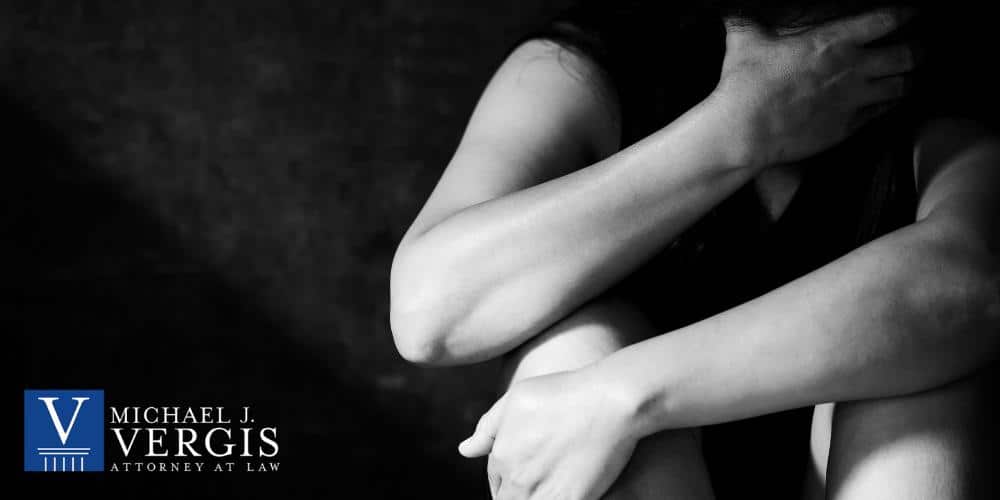When you’ve been arrested for domestic violence, it can often feel like you’re already guilty before you’ve had a fair trial. While as dire as the circumstances might feel, working with an experienced criminal defense attorney can increase your chances of having the domestic violence charges dropped.
In this blog, Bossier City criminal defense attorney Michael J. Vergis and his legal team shed light on this complex and sensitive subject. Domestic violence charges are not only legally challenging but also emotionally taxing, impacting not just the accused but also their loved ones.
If you’re facing domestic violence charges, contact the Law Offices of Michael J. Vergis to learn more about your legal options. To schedule a free consultation with Bossier City domestic violence attorney Michael J. Vergis, call (318) 698-3724 today.

What Constitutes Domestic Violence in Louisiana
Domestic violence encompasses a range of actions that go beyond physical harm, including sexual assault, emotional abuse, and threats of violence. These actions, when directed towards a family or household member, can lead to serious charges, often classified as domestic abuse battery or aggravated domestic abuse battery, depending on the severity.
A household or family member, according to Louisiana domestic violence laws, encompasses a variety of relationships, including:
- Spouses, whether current or former.
- Parents, be they biological, adoptive, step, or foster.
- Children – biological, adopted, step, or foster children.
- Any child, whether biological, adopted, step, or foster, who currently lives or has previously lived in the same residence as the offender.
- Any child of the offender, regardless of whether they reside with the offender or not.
LA Revised Statute 14:35.3
Louisiana Revised Statue 14:35.3 defines domestic abuse battery as the deliberate application of force or violence by a member of a household or family against another individual within the same household or family.
LA Revised Statute 14:37.7
Domestic abuse aggravated assault is defined under Louisiana Revised Statute 14:37.3 as an assault involving a dangerous weapon carried out by a member of a household or family against another individual within the same household or family.
Misdemeanor Domestic Violence Cases
In Louisiana, most domestic violence charges are considered misdemeanor offenses. This classification typically includes less severe forms of domestic violence, such as simple battery, where physical harm is inflicted without the intent to cause serious injury. Misdemeanor charges also encompass acts of harassment, criminal property damage, and trespassing within a domestic context.
Felony Domestic Violence Cases
Domestic violence charges can be increased to felony offenses if:
- The victim is pregnant.
- The abuse happens in front of a child 13 years or younger.
- Strangulation and/or burning are involved.
- It’s the offender’s third, fourth, or subsequent offense.

Penalties for Louisiana Domestic Violence Charges
In Louisiana, the severity of criminal charges and penalties for domestic violence escalates with each subsequent offense.
- First Offense: A person’s first domestic violence offense is considered a misdemeanor. Offenders may face fines ranging from $300 to $1,000 and a jail term of up to 6 months, with a mandatory minimum of 48 hours served without the possibility of probation, parole, or suspension.
- Second Offense: A second domestic violence conviction is still considered a misdemeanor offense. However, the penalties increase to a fine costing between $750 and $1,000, and a jail sentence ranging from 60 days to 1 year, with at least 14 days served without probation, parole, or suspension options.
- Third Offense: The third time someone is convicted of domestic violence, they will face felony charges. Perpetrators are subject to a minimum fine of $5,000 and a prison term of 10 to 30 years, with a mandatory minimum of 3 years to be served without probation, parole, or suspension.
- Fourth and Subsequent Offenses: Louisiana law continues to treat domestic abuse battery offenses as felony charges. The penalties mirror those of the third offense: a minimum fine of $5,000 and a prison sentence of 10 to 30 years, with at least three years served without the benefit of probation, parole, or suspension.
Can a Victim Drop Charges?
Once a domestic violence case is initiated, particularly when it has progressed into a criminal prosecution, the victim does not have the authority to dismiss the charges against the accused.
A domestic violence situation leads to a criminal case when the victim or a witness contacts emergency services during an episode of violence. Upon arrival, police officers assess the situation by collecting alleged victim statements, interviewing witnesses, photographing the scene, and gathering other relevant evidence. If they find sufficient probable cause, a police officer will arrest the suspected perpetrator and detain them for a mandatory “cooling off period” lasting several days. The decision to press criminal charges is then in the hands of the state government.
Once an arrest has been made, the control over the continuation or dismissal of the charges shifts away from the domestic violence victim. Instead, the decision is governed by state laws, the discretion of the prosecution, and the available evidence to prove domestic violence occurred beyond a reasonable doubt.

Can a Prosecutor Drop Charges?
The power to drop charges in a domestic violence case largely rests with the prosecutor, a concept known as prosecutorial discretion. This discretion allows prosecutors to decide whether to continue a case or dismiss the charges based on various factors. These factors can include the strength of the evidence, the severity of the offense, the defendant’s criminal history, and the interests of justice.
While prosecutors have the authority to drop the charges, their decisions are not made in isolation. They must consider legal standards, guidelines set by their office, and the overall impact on the community. This discretion is a critical component of the criminal justice system, as it ensures that each case is assessed individually, allowing for a fair application of the law. Prosecutorial decisions are often complex and take into account a myriad of legal and ethical considerations, reflecting the balance between the rights of the accused and the community’s need for safety and justice.
Factors Influencing the Dropping of Charges
When deciding whether to drop domestic violence charges, prosecutors weigh several critical criteria. Central to this decision is the strength of the evidence; if it’s insufficient or unreliable, the likelihood of securing a conviction diminishes, prompting consideration of case dismissal. The victim’s cooperation is another pivotal factor. While a case can proceed without the victim’s active involvement, their willingness to testify and provide a consistent account can significantly impact the case’s outcome. The defendant’s criminal history also plays a crucial role; a record of similar offenses may sway the prosecutor to pursue the case more aggressively.
If the victim recants their statements or alters their account of the events, this can profoundly affect the case. Such changes can introduce doubt regarding the accuracy of the alleged crime, potentially leading to the dismissal of charges. However, prosecutors also analyze these recantations to ensure they are not the result of intimidation or coercion.

How a Criminal Defense Attorney Can Help in a Domestic Violence Case
In domestic violence cases, a criminal defense attorney like Michael J. Vergis can play a pivotal role in navigating the complex legal landscape for individuals facing such charges. With his specialized knowledge and experience in these criminal cases, Vergis offers a comprehensive defense strategy tailored to the specifics of each case. He meticulously examines the evidence, identifying any weaknesses or inconsistencies in the prosecution’s case.
Bossier City criminal defense attorney Michael J. Vergis’ legal approach often involves negotiating with the prosecution, leveraging his insights and advocacy skills to potentially reduce or drop domestic violence charges. His defense tactics also include thorough preparation for trial, where he aggressively defends his client’s rights and challenges the allegations.
Attorney Michael J. Vergis understands the delicate aspects of domestic violence allegations, such as addressing the impact of recantations or changes in the victim’s statements. He aims to ensure a fair legal process while pursuing the best possible outcome for his clients.
Call Bossier City Domestic Violence Attorney Michael J. Vergis for a Free Consultation Today
If you’re facing a domestic violence charge in Louisiana, reaching out to Bossier City criminal defense and family law attorney Michael J. Vergis is crucial. For personalized guidance and a robust defense strategy, consider scheduling a free consultation with the Law Offices of Michael J. Vergis by calling (318) 698-3724 today.

